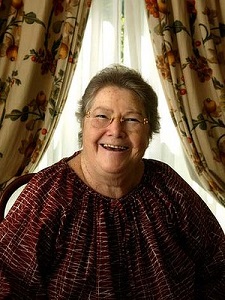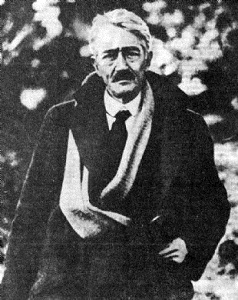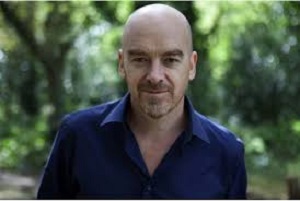De Australische schrijfster Colleen McCullough werd geboren op 1 juni 1937 in Wellington. Zie ook mijn blog van 1 juni 2009 en eveneens alle tags voor Colleen McCullough op dit blog.
Uit: The Thorn Birds
“The house lay on top of a small hill about one hundred feet higher than the barn and stables. Like all New Zealand houses, it was wooden, rambling over many squares and of one story only, on the theory that if an earthquake struck, some of it might be left standing. Around it gorse grew everywhere, at the moment smothered in rich yellow flowers; the grass was green and luxuriant, like all New Zealand grass. Not even in the middle of winter, when the frost sometimes lay unmelted all day in the shade, did the grass turn brown, and the long, mild summer only tinted it an even richer green. The rains fell gently without bruising the tender sweetness of all growing things, there was no snow, and the sun had just enough strength to cherish, never enough to sap. New Zealand’s scourges thundered up out of the bowels of the earth rather than descended from the skies. There was always a suffocated sense of waiting, an intangible shuddering and thumping that actually transmitted itself through the feet. For beneath the ground lay awesome power, power of such magnitude that thirty years before a whole towering mountain had disappeared; steam gushed howling out of cracks in the sides of innocent hills, volcanoes spumed smoke into the sky and the alpine streams ran warm. Huge lakes of mud boiled oilily, the seas lapped uncertainly at cliffs which might not be there to greet the next incoming tide, and in places the earth’s crust was only nine hundred feet thick.
Yet it was a gentle, gracious land. Beyond the house stretched an undulating plain as green as the emerald in Fiona Cleary’s engagement ring, dotted with thousands of creamy bundles close proximity revealed as sheep. Where the curving hills scalloped the edge of the light-blue sky Mount Egmont soared ten thousand feet, sloping into the clouds, its sides still white with snow, its symmetry so perfect that even those like Frank who saw it every day of their lives never ceased to marvel.
It was quite a pull from the barn to the house, but Frank hurried because he knew he ought not to be going; his father’s orders were explicit. Then as he rounded the corner of the house he saw the little group by the gorse bush.”

Colleen McCullough (Wellington, 1 juni 1937)
De Argentijnse schrijver Macedonio Fernández werd geboren op 1 juni 1874 in Buenos Aires. Zie ook mijn blog van 1 juni 2009 en ook mijn blog van 1 juni 2010.
Uit: From The Museum of Eterna’s Novel (Vertaald door Margaret Schwartz)
“With this I’m publishing a prologue of such a novel, since I hope to guarantee that in special rehearsals its characters, events, and jokes will all prove its utter seriousness; and even publishing it is a rehearsal, anterior to the reader. But only the prologues after this one!
I’ll rehearse the upcoming prologue instead. Also, there’s a new German word in Spanish that I consulted with Xul Solar about in his workshop: “Languages in repair.” It’s an amended adjective, but new, not like mended boots.
The Prologue to:
The “for-all-of-us-artists-gifted-with-daydreams” Reader
The “often-dreamed-of” Reader; The “who the author dreams is reading his dreams” Reader.
The “who-the-art-of-writing-wants-to-be-real-more-than-merely-real-reader-of-dreams” Reader.
The “only-real-that-art-recognizes” reader of dreams.
The “less-real, he-who-dreams-the-dreams-of-the-other,-and-stronger-in-reality,-since-he-does-not-lose-
it-although-they-won’t-let-him-dream-them-but-only-re-dream” Reader.
I believe I have identified the reader who addresses himself to me, and I have obtained the proper adjectivalization of his entire being, after so much fragmentation and some false adjectives. “Dear” reader does not modify the reader but the author, et cetera. »

Macedonio Fernández (1 juni 1874 – 10 februari 1952)
Onafhankelijk van geboortedata:
De Nederlandse dichter Dennis Gaens werd geboren in Susteren in 1982. Zie ook alle tags voor Dennis Gaens op dit blog.
Dani
Dani danst omdat ze niets ander kan; lenig klinkt alleen opwindend, in het
echt is het best eng. Haar is nooit iets gevraagd, alles aan haar is aanname.
Als iemand meent dat ze goed is, dan is dat zo. Ze draagt wat jij denkt dat
haar staat, gaat langs routes die aangegeven staan.
Ze houdt een pakje sigaretten bij zich voor het geval ze een bolle spiegel
vindt. Ze doet graag alsof ze een dik meisje is dat rookt.
Ze hoest, maar houdt niemand voor de gek. Sommige mensen doen niet
anders dan doodgaan, maar niet Dani. Die is geboren om – of ze wil of
niet – te bewegen.
En met publiek is het anders. Dan is het niet zijzelf die terugkijkt.

Dennis Gaens (Susteren, 1982)
De Britse schrijver Rhidian Brook werd geboren in 1964 in Tenby. Zie ook alle tags voor Rhidian Brook op dit blog.
Uit: The Aftermath
“The Beast is here. I’ve seen him. Berti’s seen him. Dietmar’s seen him. With his black fur like a fancy lady’s coat. Andthose teeth like piano keys. We have to kill him. If we don’t, who will? The Tommies? The Yankees? The Russkies? The French? None of them will, because they’re too busy looking for other things. They want this and they want that.
They’re like dogs fighting over a bone that’s got no meat on it. We have to do it ourselves. Get the Beast before he gets us. Then everything will be better.’
The boy Ozi readjusted his headgear as he led the others through the pulverized landscape of the Tommy-bombed city. He wore the English hard-helmet he’d stolen from the back of a truck near the Alster. Although it was not as stylish as the American or even the Russian helmets he had in his collection, it fitted him the best and helped him swear in English when he wore it, just like the Tommy sergeant he’d seen shouting at the prisoners at Hamburg’s Dammtor station: ‘Oi! Put your fucking hands up. Fucking up, I said!
Where I can see them! Dumb bloody fucking Huns.’ Just for a moment those men had failed to raise their hands; not because they didn’t understand, but because they were too weak from lack of food. Dumb-Bloody-Fucking-Huns! Below the neck, Ozi’s clothes were a hybrid fashion of make-do invention where rags and riches jumbled together: the dressing gown of a dandy; the cardigan of an old maid; the collarless shirt of a grandfather; the rolled-up trousers of a storm trooper tied with the belt of a clerk’s necktie; and the shoes, shredded at the toe, of a long-gone station-master.”

Rhidian Brook (Tenby, 1964)
